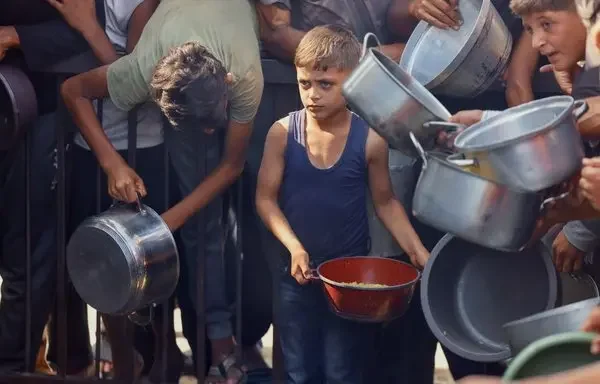Hamas’ tactics threaten Gazans’ safety and future
For Gazans, vigilance is essential to safeguarding their safety, preserving political agency, and building a future rooted in stability and progress.
Vigilance means recognizing how these forces can exploit the population’s vulnerability, obstruct progress and prolong conflict for their own objectives.
Political control and suppression of dissent
Since taking control of the Gaza in 2007, Hamas has used intimidation to silence opposition and strengthen its power.
Its security forces have reportedly conducted arbitrary arrests of activists and journalists, blocked public demonstrations, and detained critics without fair trials.
Human rights organizations have documented allegations of mistreatment, including torture and extrajudicial actions, against political opponents following Hamas' rise to power.
Misuse of civilian infrastructure
Hamas has been accused of operating military operations from civilian areas, such as schools, mosques and hospitals, placing civilians in direct danger.
Independent human rights monitors have reported that Hamas uses civilian buildings and spaces for militant purposes.
This approach blurs the line between civilian and combatant activity, increasing the risks faced by ordinary Gazans during conflict.
Diversion of aid and resources
In 2025, humanitarian aid distribution in Gaza continues to face obstacles. Reports suggest that Hamas has diverted supplies, hoarded goods in tunnels and restricted civilian access to maintain control.
Observers and residents have noted that food and fuel meant for aid distribution are sold at inflated prices in private markets.
Concerns have been raised that networks affiliated with Hamas influence access to these goods, depriving civilians of essential resources.
What vigilance looks like
For Gazans, vigilance means staying informed of arbitrary detentions, reporting missing persons and supporting independent journalists when possible.
It also means calling for transparency in aid distribution and ensuring humanitarian support reaches civilians without interference.
Awareness of how armed groups exploit hardship helps communities resist manipulation and maintain hope.
By remaining informed and united, Gazans can strengthen their political voice despite ongoing repression.
Vigilance helps protect their rights, reinforces community resilience and supports efforts to build a future focused on civilian welfare rather than control by armed groups.







Yes
ReplyThis is correct.
ReplyHave mercy on us!
Reply